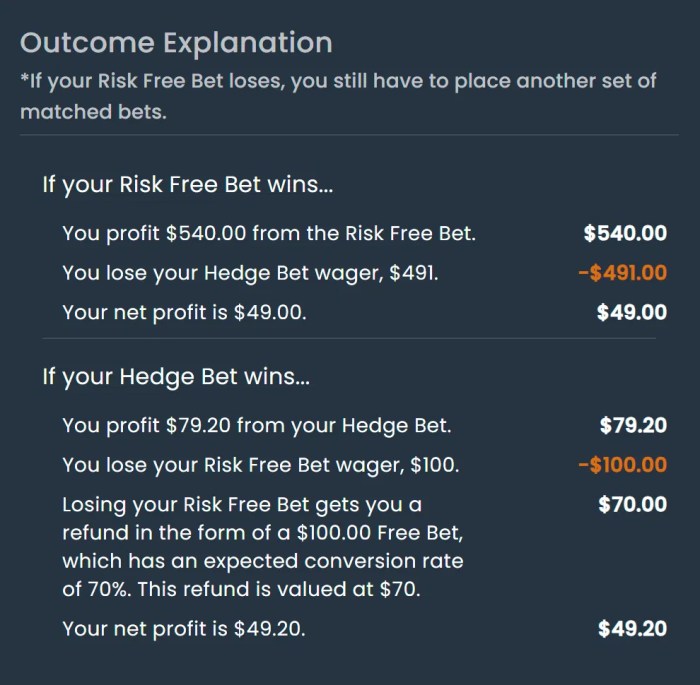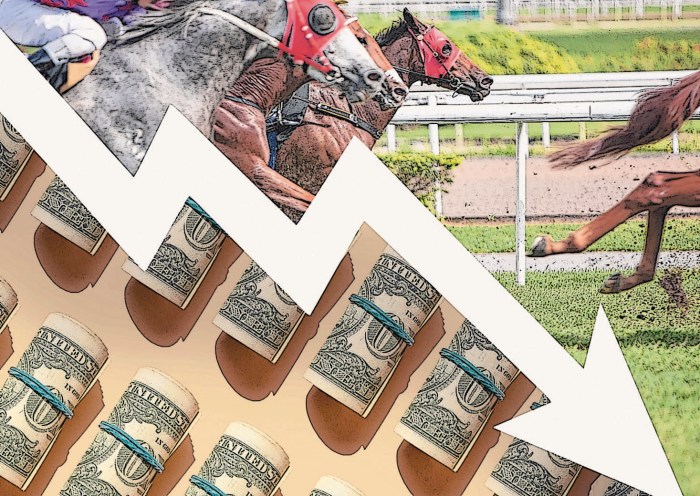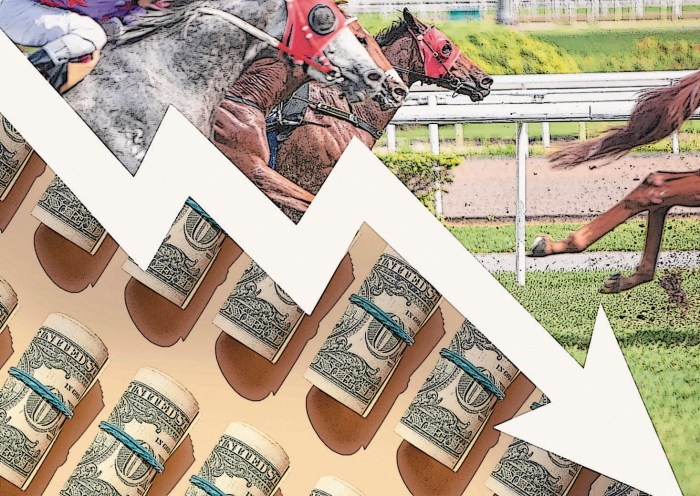Bet aint worth the hand – Bet ain’t worth the hand – a phrase that encapsulates the wisdom of recognizing when a gamble isn’t worth the risk. This exploration delves into the historical context of this adage, examining its use in various scenarios, from gambling to personal relationships, and how its meaning has evolved over time. We’ll analyze the phrase’s components, dissect its implications, and explore illustrative examples that showcase its applicability in everyday life.
The phrase “bet ain’t worth the hand” speaks to the importance of careful consideration before making any significant decision, especially those involving risk and potential loss. It highlights the need to assess the potential reward against the possible downside before committing to a course of action. By understanding the different contexts in which this adage is used, we gain valuable insights into how to make better choices, avoid costly mistakes, and build a more resilient approach to life’s inevitable uncertainties.
Understanding the Phrase’s Context

The phrase “bet ain’t worth the hand” speaks to a fundamental human experience: the weighing of risk against reward. It encapsulates the recognition that sometimes, the potential gain from a gamble isn’t sufficient to justify the potential loss. This understanding transcends the realm of gambling, extending to broader areas of life where calculated decisions are necessary. The phrase carries a sense of caution, urging careful consideration before committing to a course of action.
Historical Overview
The phrase “bet ain’t worth the hand” likely originated in the vernacular of the American South, gaining traction during the era of widespread gambling and social gatherings. Early uses likely centered around the specific context of card games, reflecting the common experience of evaluating one’s hand and determining whether the risk of the bet was worth the potential payout.
Its roots lie in the practical wisdom passed down through generations, emphasizing the importance of careful assessment before making a commitment.
Sometimes, a bet just isn’t worth the hand you’re holding. It’s a lesson I’ve learned the hard way, and honestly, seeing the exciting news about a new Lizzo documentary for HBO Max announced here reminds me of that. It’s all about making smart decisions, even when the stakes seem high. Bet ain’t always worth the hand, in life or in a game of cards.
Different Contexts of Use
The phrase’s application extends far beyond the poker table. It can be used to describe a variety of situations, reflecting a critical evaluation of the potential outcomes.
Gambling
In the context of gambling, “bet ain’t worth the hand” signifies the assessment of a hand’s strength before committing to a bet. A weak hand, no matter the bet, signifies the risk is not worthwhile.
Relationships
In interpersonal relationships, the phrase might apply to a situation where the potential gain of a relationship is outweighed by the possible negative outcomes. For instance, someone might feel that the effort and emotional investment required in a particular relationship aren’t worth the potential pain or disappointment.
Decision-Making
The phrase also resonates in general decision-making. It serves as a reminder to weigh the potential gains against the potential losses before making a significant commitment. A business decision, for example, might be deemed not worth the risk if the potential profits are insufficient to cover the potential losses.
Examples in Popular Culture
While explicit use of the phrase might not be ubiquitous in popular culture, the underlying sentiment is frequently explored. Characters in novels and films might express similar sentiments through other language, reflecting the fundamental principle of weighing risk against reward.
Evolution of Meaning
The phrase’s meaning hasn’t undergone drastic changes. It remains rooted in the concept of assessing risk and reward, whether in a game of cards, a personal relationship, or a business venture. The core idea is to understand the potential pitfalls before taking a risk.
Table of Interpretations
| Context | Interpretation | Example |
|---|---|---|
| Gambling | A bet is not worthwhile if the hand’s strength is insufficient to justify the risk. | “That bet ain’t worth the hand; I’ve got two pair, and he’s got a pocket ace.” |
| Relationships | The emotional investment in a relationship isn’t worth the potential pain or disappointment. | “The effort I put into this relationship isn’t worth the heartache I’ve been experiencing.” |
| Decision-Making | The potential gains of a decision do not outweigh the potential losses. | “Expanding into that market is a risky venture, and the potential profits aren’t worth the possible losses.” |
Analyzing the Phrase’s Components: Bet Aint Worth The Hand
The phrase “bet ain’t worth the hand” is a concise and evocative statement about the assessment of risk versus reward in a gamble or a risky situation. It suggests that the potential gain from a particular wager is not worth the potential loss. Understanding the elements of this phrase reveals the nuanced perspectives embedded within the statement.This analysis delves into the individual components of the phrase, exploring their connotations and implications within the context of a wager or a high-stakes decision.
We’ll examine how these components combine to form a complete idea, and compare this phrase with similar expressions, highlighting the unique characteristics of this particular phrasing.
Sometimes, a bet just isn’t worth the hand you’re holding. You know, like when you’re listening to some seriously cool tunes, like those from Animal Collective, Hot Chip, Dirty Projectors, Franz Ferdinand, and DJs spun on Domino Records radio station, it’s just hard to keep a poker face. It’s all about the music, and that feeling is way more valuable than any potential win.
Still, sometimes you just gotta walk away, and that’s okay, because a bet ain’t worth the hand.
Key Elements and Their Connotations
The phrase is built around four key elements: “bet,” “ain’t,” “worth,” and “hand.” Each contributes to the overall meaning and feeling of the statement.
- “Bet” signifies a wager, a gamble, or a stake in a contest or game of chance. It implies the act of risking something of value. Connotations can range from simple games of chance to more serious financial or strategic decisions.
- “Ain’t” is a contraction of “is not” or “are not,” and it contributes a colloquial, informal tone to the statement. This informal language reinforces the idea that the speaker is expressing a personal judgment.
- “Worth” functions as a verb here, indicating the value or merit of something. In this context, it implies a cost-benefit analysis, assessing whether the potential reward justifies the risk.
- “Hand” in this context signifies the current situation or circumstances. It represents the totality of factors, the available resources, and the potential outcomes.
Comparison with Similar Expressions
Similar expressions exist, each conveying a similar idea of risk assessment. For example, “Don’t gamble what you can’t afford to lose” and “The risk isn’t worth the reward” share a common theme of caution and careful consideration of potential outcomes. The unique characteristic of “bet ain’t worth the hand” is its informal tone and direct comparison of the wager to the overall situation.
Grammatical Structure
| Word | Part of Speech | Meaning in Context |
|---|---|---|
| Bet | Noun/Verb | A wager, a gamble; here, acting as a verb, the act of wagering |
| Ain’t | Contraction | Is not; conveying informality and directness |
| Worth | Verb | Having value equal to; indicating a cost-benefit analysis |
| Hand | Noun | The current situation or circumstances; the overall state of affairs |
Exploring the Phrase’s Implications
The phrase “bet ain’t worth the hand” transcends its gambling origins. It speaks to a fundamental human tendency to overestimate our chances when faced with unfavorable circumstances. Understanding the implications of this adage is crucial for navigating life’s various challenges, from investments to personal relationships. This exploration delves into the underlying principles and values embedded within the phrase, examining its potential consequences and demonstrating its applicability beyond the poker table.The core principle behind “bet ain’t worth the hand” is the importance of assessing risk and reward objectively.
It encourages careful consideration of the potential losses against the anticipated gains. Failing to recognize an unfavorable “hand” often leads to unnecessary risk-taking, potentially resulting in significant losses. The phrase highlights the need for prudence and foresight in decision-making.
Underlying Principles and Values
The phrase emphasizes the value of realistic self-assessment. It encourages us to acknowledge when our circumstances are not in our favor. This recognition is essential for making sound decisions, minimizing potential losses, and maximizing the likelihood of a positive outcome. Ultimately, it underscores the importance of wisdom and foresight in navigating life’s uncertainties.
Potential Consequences of Unfavorable Bets
Taking a bet when the “hand” is unfavorable can have far-reaching consequences. Financial losses are a common result, but the impact can extend to damaged relationships, lost opportunities, and eroded self-confidence. The phrase acts as a cautionary tale, reminding us of the potential for negative outcomes when we ignore the realities of a situation.
Examples Outside of Gambling
The concept of “bet ain’t worth the hand” applies far beyond the casino. Consider a potential investment where the market indicators suggest a high risk of loss. Or, a relationship conflict where the initial signs point to an irreparable rift. In these situations, ignoring the unfavorable circumstances could lead to regrettable consequences. Recognizing the unfavorable “hand” allows for a more measured and potentially more successful approach.
Advising on Risky Decisions
When advising someone on a risky decision, the phrase “bet ain’t worth the hand” can serve as a powerful tool. Instead of simply stating the obvious risk, it encourages a deeper reflection on the situation. The advice prompts a consideration of the potential gains versus the likely losses, helping the individual make a more informed and calculated choice.
Sometimes, a bet just isn’t worth the hand you’re holding. It’s a tough lesson, but hey, at least you can always check out what Travis Scott is doing, like giving away $100,000 to fans here. Still, even with a huge payout, that doesn’t change the fact that a bad bet is still a bad bet.
You’ve got to know your limits.
Table of Scenarios
| Scenario | Risk/Reward | Application of Phrase |
|---|---|---|
| Investment | Market downturn, high debt levels | Avoid investing in a stock or venture when the market outlook is unfavorable. The reward may not outweigh the significant risk of loss. |
| Relationship Conflict | Communication breakdown, trust erosion | If the relationship is characterized by significant communication breakdown and erosion of trust, continuing the relationship may be futile. It’s not worth risking further emotional pain or investment. |
| Business Venture | Weak market demand, high startup costs | A business venture with a low likelihood of success due to weak market demand or high startup costs may not be worth the effort and resources invested. |
| Career Change | Lack of skills, unfavorable job market | A career change might not be beneficial if the candidate lacks the necessary skills or if the job market in their desired field is unfavorable. |
Illustrative Examples and Applications
The phrase “bet ain’t worth the hand” speaks to a crucial understanding of risk assessment and calculated decision-making. It emphasizes the importance of recognizing when the potential reward isn’t worth the potential loss, highlighting the need for careful evaluation of odds and potential outcomes. This concept transcends gambling and applies to many facets of life, from business negotiations to personal relationships.
Short Story Illustrations
The phrase’s impact often becomes clearer through narrative examples. Consider a budding entrepreneur, eager to expand their business. They are presented with a lucrative but high-risk investment opportunity. Analyzing the potential gains against the possible losses, they realize the bet isn’t worth the hand. This calculated decision, although seemingly losing a potential windfall, ultimately protects the business from catastrophic failure.
Alternatively, a seasoned poker player, assessing the odds, recognizes that a certain hand is unfavorable, a clear indication that the bet isn’t worth the risk.
Tone and Emphasis in Dialogue
The meaning of “bet ain’t worth the hand” is conveyed not just through the words themselves, but also through the tone and emphasis used. A casual, conversational tone might suggest a simple assessment of a risky situation, while a more forceful tone emphasizes the gravity of the potential loss. Consider the difference between a casual friend’s observation about a risky investment, and a seasoned investor’s stark warning.
Dialogue Examples
The application of this phrase in dialogue can vary significantly, adapting to different contexts and relationships. Understanding the nuanced differences in tone is crucial to correctly interpret the message.
| Scenario | Dialogue Example | Tone |
|---|---|---|
| Negotiation | “I’m not sure this deal is worth the risk. The bet ain’t worth the hand.” | Cautious, analytical |
| Argument | “You’re pushing your luck, this bet ain’t worth the hand. We’re going to lose everything!” | Strong, assertive, warning |
| Friendship | “That’s a pretty big gamble. Maybe the bet ain’t worth the hand in this case.” | Gentle, concerned |
| Business Meeting | “The potential reward doesn’t justify the substantial risk. The bet ain’t worth the hand in this deal.” | Professional, objective |
Visual Representation

The saying “bet ain’t worth the hand” encapsulates the idea that the potential reward of a gamble isn’t always worth the risk of losing what you already possess. A visual representation can help us grasp this concept more intuitively. We can use imagery to illustrate the trade-off between potential gain and possible loss, a crucial element in understanding sound judgment in gambling and other areas of life.
Graphic Representation of Core Meaning
A simple visual could be a seesaw. One side represents the potential winnings, and the other represents the assets risked. The balance point of the seesaw represents the point where the potential gain is equal to the risk. If the risk outweighs the potential gain, the seesaw tips to the loss side, highlighting the phrase’s core meaning.
Infographic Illustrating Risks of Poor Judgment, Bet aint worth the hand
This infographic would use a contrasting color scheme to represent the potential positive and negative outcomes. A large central image of a dice roll, or a poker hand, can be used as the focal point. Branching off from the central image, lines would represent various scenarios. Red lines would indicate potential losses and blue lines would indicate potential gains.
The lines would be proportional to the size of the risk and potential reward. The length of the red lines would be longer than the blue lines, illustrating that the negative consequences of poor judgment usually outweigh the positive outcomes.
Descriptive Text for Visual Representation (without Image)
Imagine a scale with two pans. On one pan, we see a stack of coins representing the potential winnings from a bet. On the other pan, we see a collection of items representing the value of what is being risked. If the stack of coins on the winning side is smaller than the items on the losing side, the scale tips towards a loss.
This imbalance visually represents the core concept of the phrase “bet ain’t worth the hand.” The visual emphasizes that the risk is often disproportionately greater than the potential reward.
Epilogue
Ultimately, “bet ain’t worth the hand” serves as a powerful reminder to carefully evaluate the potential outcomes of any significant decision. By understanding the nuances of this timeless adage, we can develop a more discerning approach to risk assessment and make choices that align with our values and long-term goals. The phrase encourages us to consider the potential consequences, weighing the reward against the risk, and fostering a more thoughtful and measured approach to life’s challenges.


